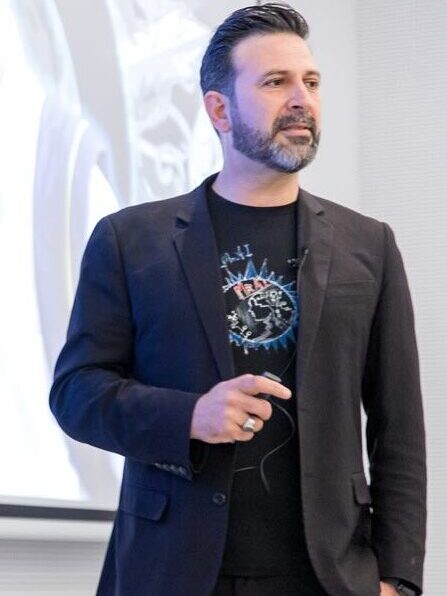
Visibility must come with impact — especially in AI for education. With ethics. These aren’t just words — they reflect what I believe science, technology, and academic life should be about.
I’m not only interested in what Artificial Intelligence can do, but in what it should do. Especially in classrooms, in public life, and in the hands of young learners. I work with students, educators, and communities to help make AI more understandable, more useful, and above all — more human.
Hi, I’m Savvas Chatzichristofis. I’m a Professor of Artificial Intelligence and Vice-Rector for Research and Innovation at Neapolis University Pafos in Cyprus. I’m also honored to serve as a member of the National AI Strategy Committee of Cyprus, contributing to public dialogue and policy on the ethical and educational use of emerging technologies. But above all, I see myself as someone who believes that knowledge means little if it doesn’t return to society.
This website is a quiet attempt to share some of what I’ve learned, built, and questioned along the way — and to open space for further thinking, together.
Who I Am | What I Do|Why I Do It | With Whom I Walk
1. Who I Am
I was born and raised in Cyprus, where I first fell in love with the logic of mathematics and the creative potential of technology.That curiosity led me to study Electrical and Computer Engineering at the Democritus University of Thrace, and later complete a Ph.D. in Computer Vision.
Along the way, I had the chance to work and teach in different institutions — including a six-year postdoctoral fellowship at CERTH, as well as academic roles at the Cyprus University of Technology and Alpen-Adria-Universität Klagenfurt in Austria.
In 2017, I joined Neapolis University in Pafos. Today, I serve as Vice-Rector for Research and Innovation and as a Professor of Artificial Intelligence.
But titles aside, I still consider myself a student — learning every day from the people I teach, collaborate with, and listen to.
2. What I Do
My research revolves around Artificial Intelligence, Computer Vision, and Robotics — especially where these fields intersect with real-world needs.
Some of these projects include:
- sFly: Visual SLAM for autonomous drones in environments without GPS.
- NOPTILUS: Coordinating underwater autonomous vehicles for deep-sea exploration.
- Compact Composite Descriptors (CCDs): New ways to organize and retrieve multimedia content efficiently.
Along the way, my work has been cited in more than 5,000 academic publications, with an h-index of 37. I don’t see these numbers as a personal achievement, but rather as evidence that ideas — when shared — can grow beyond the boundaries of one’s own work.
Beyond research papers, I try to bring science into the public space. Through articles in Forbes, Insider, national media, and short-form videos on social platforms, I attempt to make complex ideas more approachable. Some of these efforts have reached wide audiences, reminding me that people are still eager for meaningful conversations — when we meet them where they are.
On the software side, I’ve contributed to LIRe, the img(Rummager) platform, and the Houdini MC. Most of these tools are available openly — because I believe in sharing what we build.
3. Why I Do It
How will artificial intelligence shape the future of education?
That question has become central to my work. I’m not just interested in what AI can do — but in what it should do, and how we can ensure it empowers rather than replaces. I worry about the speed, scale, and opacity with which AI enters education.
That’s why my research today is rooted in ethics, pedagogy, and inclusion. I explore how AI can support teachers and learners — especially those left at the margins — and how we can design AI systems that respect the complexities of human learning.
4. With Whom I Walk
Over the years, I’ve worked closely with educators, children, and communities — not only in research labs, but in real-world settings: schools, robotics competitions, youth festivals, and outreach events.
I offer free workshops, school visits, and open-access educational resources because I believe education should be shared freely and joyfully. These small actions have earned recognition — like the Cyprus Education Leaders Awards in 2020, 2021, and 2023 — but the true reward lies in the laughter and questions of young learners.
I also serve on national advisory committees, contribute to public media, and write children’s books — simple ways to bridge technology and imagination, and remind myself of what truly matters: people.